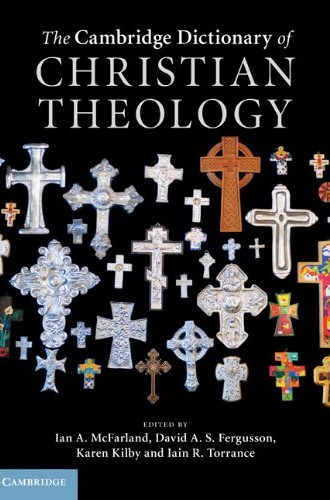The Cambridge Dictionary of Christian Theology
To be a Christian is to be a theologian, because by definition all Christians, lay or clergy, engage in God-talk. The only question is whether this conversation is well informed. For theological conversation to occur, we need the kind of resources that lay out the basic issues, perspectives and players—and what better resource to have close at hand than a comprehensive, up-to-date dictionary that is accessible to both clergy and educated laypeople, a dictionary with breadth of perspective. Such a request is a tall order, but the editors of The Cambridge Dictionary of Christian Theology have attempted to meet the need. As with any such work, the results are mixed, but the fact that the attempt has been made needs to be celebrated.
As far as I know, the only similar resource is the dictionary I've been using since I was in seminary more than a quarter century ago. The Westminster Dictionary of Christian Theology, which remains in print, was first published in the late 1960s under the editorship of Alan Richardson; a revised edition was published in 1983, with John Bowden as coeditor. That dictionary has served me well, but if you compare the two, you'll quickly discover how much has changed over the past three decades. Back then there were neoorthodox, process and liberation theologies, and now we've added postcolonial, queer and womanist theologies, to name just a few. The fact that the new dictionary deals with these more recent threads makes it a worthy addition to the libraries of all who wish to be theologically informed. If only the volume weren't so expensive.
Cost aside, the editors and publisher of the new dictionary created it in response to the perceived need for a comprehensive and inclusive one-volume reference work that would cut across confessional lines and offer a "specifically theological examination of each topic considered." The editors note that their intent was for this volume to demonstrate a "generous orthodoxy." That is, it is distinctly Christian but also inclusive. Though they recruited a broad spectrum of contributors, the editors, especially Ian McFarland, contributed a fair number of articles as well.






